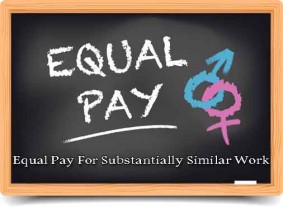 A “steering” allegations settlement has been reached between G&K Services, a company that manufactures branded uniforms and facility products, and the U.S. Department of Labor regarding allegations of gender discrimination. The settlement involves G&K paying over $1.8 million to affected employees at nine locations – including a facility in Sacramento.
A “steering” allegations settlement has been reached between G&K Services, a company that manufactures branded uniforms and facility products, and the U.S. Department of Labor regarding allegations of gender discrimination. The settlement involves G&K paying over $1.8 million to affected employees at nine locations – including a facility in Sacramento.
A compliance review by the Department of Labor’s Office of Federal Contract Compliance Programs (OFCCP) found that female employees of G&K were allegedly steered into duties that paid less than the duties that were predominantly assigned to male employees. The term “steering” refers to the practice of directing employees toward less desirable jobs based on their membership in a protected class. (When employers are accused of paying workers lower salaries based on factors such as race or gender, they may be found to have engaged in discriminatory practices even if the workers had substantially different job duties – if the employees with lower paying positions were steered toward them based on protected characteristics.)
According to an OFCCP press release, G&K’s hiring practices involved discrimination based on race as well as gender, with the result that 456 African-American job applicants and 111 Caucasian applicants were denied equal opportunity. The OFCCP also determined that G&K’s practice of steering male applicants toward certain positions resulted in a lower hiring rate for male applicants – with 2,327 male applicants affected.
The Steering Allegations Agreement
G&K denied any wrongdoing, but as part of a conciliation agreement will pay $1,813,555 to employees from the affected classes. G&K also agreed to allow 58 female employees the opportunity to assume positions with higher salaries, and to offer 78 positions to rejected applicants.
G&K also agreed to perform “a detailed assessment of its hiring, placement and compensation practices,” and to look into whether documents such as job postings are discriminatory. The settlement also requires G&K to conduct adverse impact and compensation analyses at the nine facilities in which the OFCCP determined that discriminatory practices were taking place – and to share the results of these analyses with the agency.
This is not the first time in recent years that G&K has been found by the OFCCP to have taken part in steering. In 2013, G&K reached a settlement after being accused of steering female employees into lower paying positions at a facility in Santa Fe Springs, California. In that case, the OFCCP determined that female employees were assigned to “light duty” jobs with lower salaries, while only considering male employees for heavy duty work. The OFCCP also determined that male employees were denied opportunities as a result of only being considered for heavy duty positions. [Read more…]

